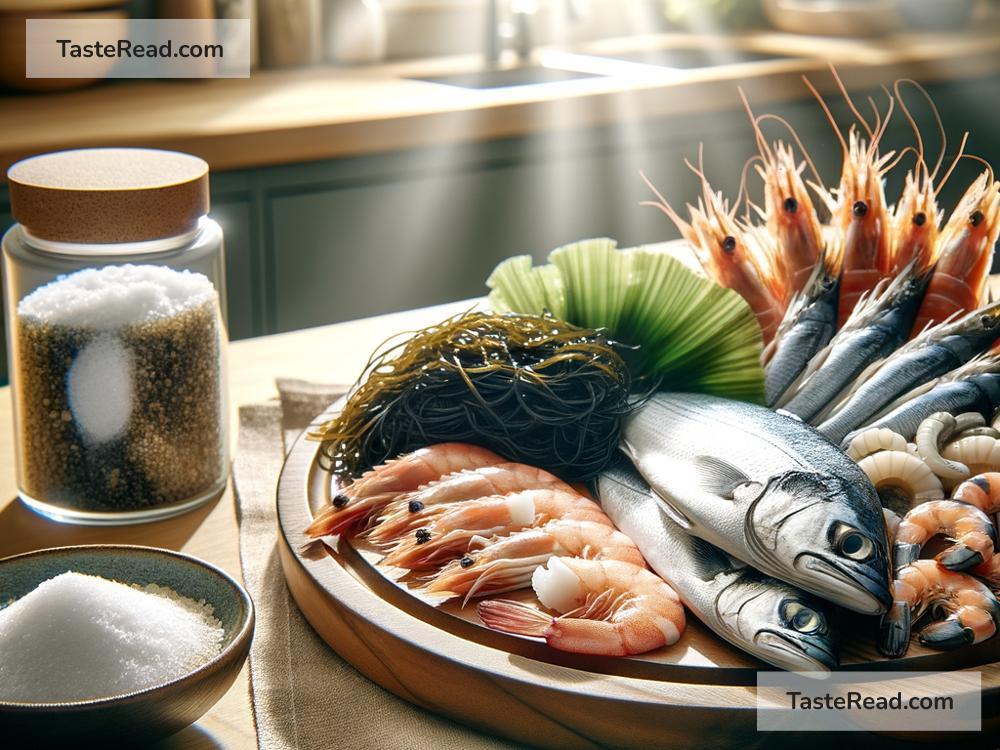The Role of Iodine in Thyroid Function: A Simple Overview
Have you ever wondered why iodine is added to table salt or why doctors talk about its importance for your health? Iodine is a mineral that plays a critical role in keeping your thyroid gland healthy. Without it, your thyroid wouldn’t work the way it should, and this could lead to serious health issues. In this blog, we’ll dive into what iodine does for the thyroid, why it’s so important, and how you can make sure you get enough iodine in your diet.
What Is the Thyroid Gland?
First, let’s talk about the thyroid gland. It’s a small, butterfly-shaped organ located in the front of your neck, right below your Adam’s apple. Despite its size, the thyroid has a big job. It produces hormones that control many functions in your body, including:
- Your metabolism (how your body uses energy)
- Growth and development
- Heart rate
- Body temperature
The thyroid gland acts as a type of “control center” that keeps your body running smoothly. But to do its job properly, it needs iodine.
What Does Iodine Do?
Iodine is essential for one main reason: it helps your thyroid produce its hormones, which are called thyroxine (T4) and triiodothyronine (T3). These hormones regulate many of the processes in your body.
Your thyroid absorbs iodine from the food you eat and uses it to make T3 and T4. If you don’t get enough iodine, your thyroid won’t be able to produce these hormones at the levels your body needs. This can lead to health problems.
Why Is Iodine So Important?
Iodine is important because it directly affects your thyroid’s ability to function. Here’s what can happen if you don’t get enough iodine:
-
Hypothyroidism (Underactive Thyroid):
When your thyroid doesn’t produce enough hormones, it’s called hypothyroidism. Symptoms of hypothyroidism include fatigue, weight gain, dry skin, hair thinning, and feeling cold all the time. Without enough iodine, your thyroid may become sluggish and fail to keep up with your body’s needs. -
Goiter (Enlarged Thyroid):
If the thyroid struggles to make enough hormones due to a lack of iodine, it can enlarge in an attempt to compensate. This condition is called a goiter, and it’s often visible as a lump in the neck. While goiters used to be common in areas where iodine was scarce, iodized salt has helped reduce the problem. -
Problems During Pregnancy:
Pregnant women need more iodine than usual because the growing baby relies on iodine to develop a healthy brain and nervous system. If a pregnant woman doesn’t get enough iodine, her baby may face developmental delays and other health issues. -
Cognitive Issues in Children:
Severe iodine deficiency in young children can lead to intellectual disabilities and growth problems. This is why it’s crucial for women during pregnancy and breastfeeding to meet their iodine requirements.
How Much Iodine Do You Need?
The amount of iodine you need depends on your age and life stage. Here’s a general guide:
- Adults (14 and older): 150 micrograms/day
- Pregnant women: 220 micrograms/day
- Breastfeeding women: 290 micrograms/day
- Children (1-8 years): 90 micrograms/day
Most people can meet their iodine needs through their diet. However, people who avoid iodine-rich foods or have certain health conditions may struggle to get enough.
Where Can You Find Iodine?
Iodine is found naturally in some foods, and it’s added to others to help people avoid deficiency. Here are some common sources of iodine:
-
Iodized Salt:
One of the easiest ways to get iodine is from iodized table salt. Just a small amount can help meet your daily needs. However, don’t overdo it—too much salt isn’t healthy for your heart. -
Seafood:
Fish, shellfish, and seaweed are excellent sources of iodine. Since iodine is found in seawater, seafood naturally contains this important mineral. -
Dairy Products:
Milk, cheese, and yogurt are also good sources of iodine. This is because iodine is often added to cattle feed and cleansers used in dairy processing. -
Eggs:
Egg yolks contain iodine, making them a simple option for boosting your intake. -
Vegetables (from iodine-rich soil):
Some fruits and vegetables grown in iodine-rich soil contain the mineral, but this depends on where they’re grown.
What Happens If You Get Too Much Iodine?
While iodine is essential, getting too much can also cause problems. An excessive amount may lead to hyperthyroidism (overactive thyroid) or thyroid inflammation. In general, most people don’t need to worry about iodine toxicity unless they’re taking supplements or consuming large amounts of iodine-rich foods.
How to Maintain Healthy Levels of Iodine
If you eat a balanced diet and include iodine-rich foods, you’re likely getting enough to support your thyroid. However, people with special diets (such as vegans or those avoiding iodized salt) may need to pay attention to their intake. Pregnant and breastfeeding women also need to be extra cautious, as they require more iodine.
Talk to your doctor if you think you’re not getting enough iodine or if you suspect thyroid issues. They may recommend a dietary change or supplements to help.
Conclusion
Iodine is like fuel for your thyroid—it helps the gland produce the hormones your body needs to function properly. Without enough iodine, your thyroid can’t do its job, leading to problems like hypothyroidism, goiters, and other health issues. The good news is that a balanced diet with iodized salt, seafood, dairy products, and eggs will typically provide the iodine you need. By understanding the role of iodine in thyroid health, you can take steps to support your body and live a healthier life.


